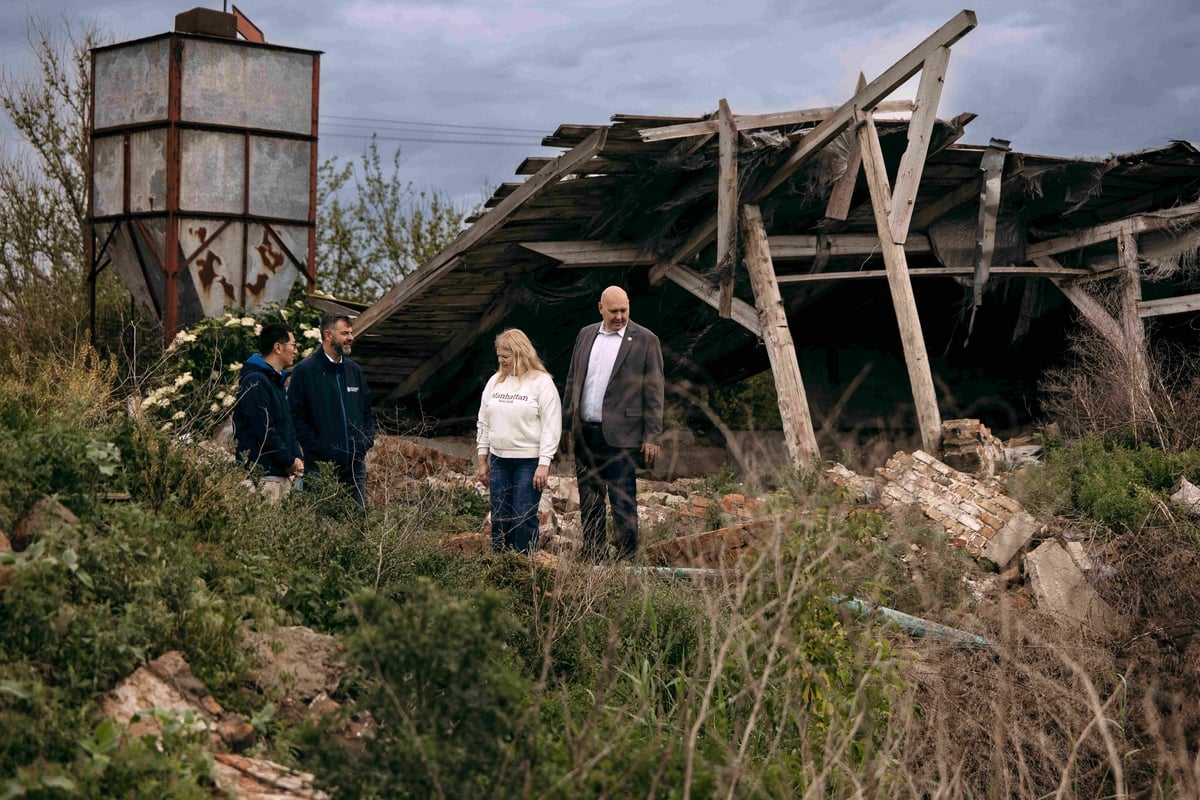June 5, 2025 | 18:23 GMT +7
June 5, 2025 | 18:23 GMT +7
Hotline: 0913.378.918
June 5, 2025 | 18:23 GMT +7
Hotline: 0913.378.918

The coming months will determine whether rural producers can sustain production through the winter and into the next season.
The Food and Agricultural Organization of the United Nations (FAO) warns that without urgent and sustained support, thousands of rural households may be unable to plant or harvest on time – jeopardizing national food security and rural livelihoods. Urgent support is needed to help them safely access their fields and obtain essential production resources like seeds, fertilizers, storage and energy solutions.
Meeting the needs of Ukraine’s rural communities requires more than emergency assistance – it demands sustained, well-coordinated response to support agrifood systems. The coming months will determine whether rural producers can sustain production through the winter and into the next season.
Across the country, rural households – many of them elderly- or female-headed – continue to depend on agriculture for their survival. They are growing vegetables, tending to a single cow or a handful of chickens, and cultivating small plots of land – often under shelling, without reliable electricity, and with limited access to markets and supplies. What used to be a routine part of their work is now life-threatening in some regions.
“With the war still affecting millions, rural frontline communities remain among the most vulnerable and the least supported. These families want to be able to provide for themselves. They want to stay on their land. And emergency agricultural support is such an effective means of enabling them to do that,” said Rein Paulsen, Director of Emergencies and Resilience at FAO, during his recent visit to Zaporizka oblast, Ukraine.
According to the Fourth Rapid Damage and Needs Assessment, conducted by the Government of Ukraine, the World Bank, the EU and the UN, Ukraine’s agriculture sector has suffered $83.9 billion in damages and losses, with an additional $1.6 billion in the irrigation sector. Rural households and small-scale farmers bear a significant share of this impact and have been forced to adapt – facing land contamination, labour shortages, rising input costs and power outages. Thousands of families still lack basic tools, inputs and services needed to sustain their production and protect their livelihoods.
Since 2022, FAO has already supported over 250 000 rural families with vegetable seeds, animal feed, day-old chicks, cash and vouchers. More than 15 000 farmers received crop seeds, temporary storage solutions and financial assistance. FAO has also worked with partners to survey mined lands, restore access to agricultural fields and support national systems for monitoring and recovery.
Despite the scale of assistance already delivered, much more is needed with many rural families at risk of being left behind. Without sustained support, their ability to plant, harvest and recover remains fragile.
“This work is absolutely indispensable,” Paulsen emphasized. “Agriculture is a fabric of rural society. It’s not just a way to make a living – it’s a way of being. And vulnerable rural families are holding on. They need support not just to survive, but to thrive and rebuild.”
Funding shortfalls continue to limit the full implementation of FAO’s Emergency and Early Recovery Response Plan for 2025–2026. With global funding constraints, FAO calls on donors and partners to redouble their support to Ukraine’s farming families, as their role in national food security, local economies and long-term recovery is indispensable.
FAO continues to provide targeted assistance and work in close coordination with national authorities and partners to ensure that Ukraine’s agri-food systems and rural livelihoods can recover, adapt and remain resilient even in the most challenging conditions. At the same time, the Organization is stepping up advocacy to ensure that the needs of rural communities remain visible and prioritized on the international agenda.
(FAO)

(VAN) Vikas Rambal has quietly built a $5 billion business empire in manufacturing, property and solar, and catapulted onto the Rich List.

(VAN) Available cropland now at less than five percent, according to latest geospatial assessment from FAO and UNOSAT.

(VAN) Alt Carbon has raised $12 million in a seed round as it plans to scale its carbon dioxide removal work in the South Asian nation.

(VAN) Attempts to bring down the price of the Japanese staple have had little effect amid a cost-of-living crisis.

(VAN) Fourth most important food crop in peril as Latin America and Caribbean suffer from slow-onset climate disaster.

(VAN) Shifting market dynamics and the noise around new legislation has propelled Trouw Nutrition’s research around early life nutrition in poultry. Today, it continues to be a key area of research.